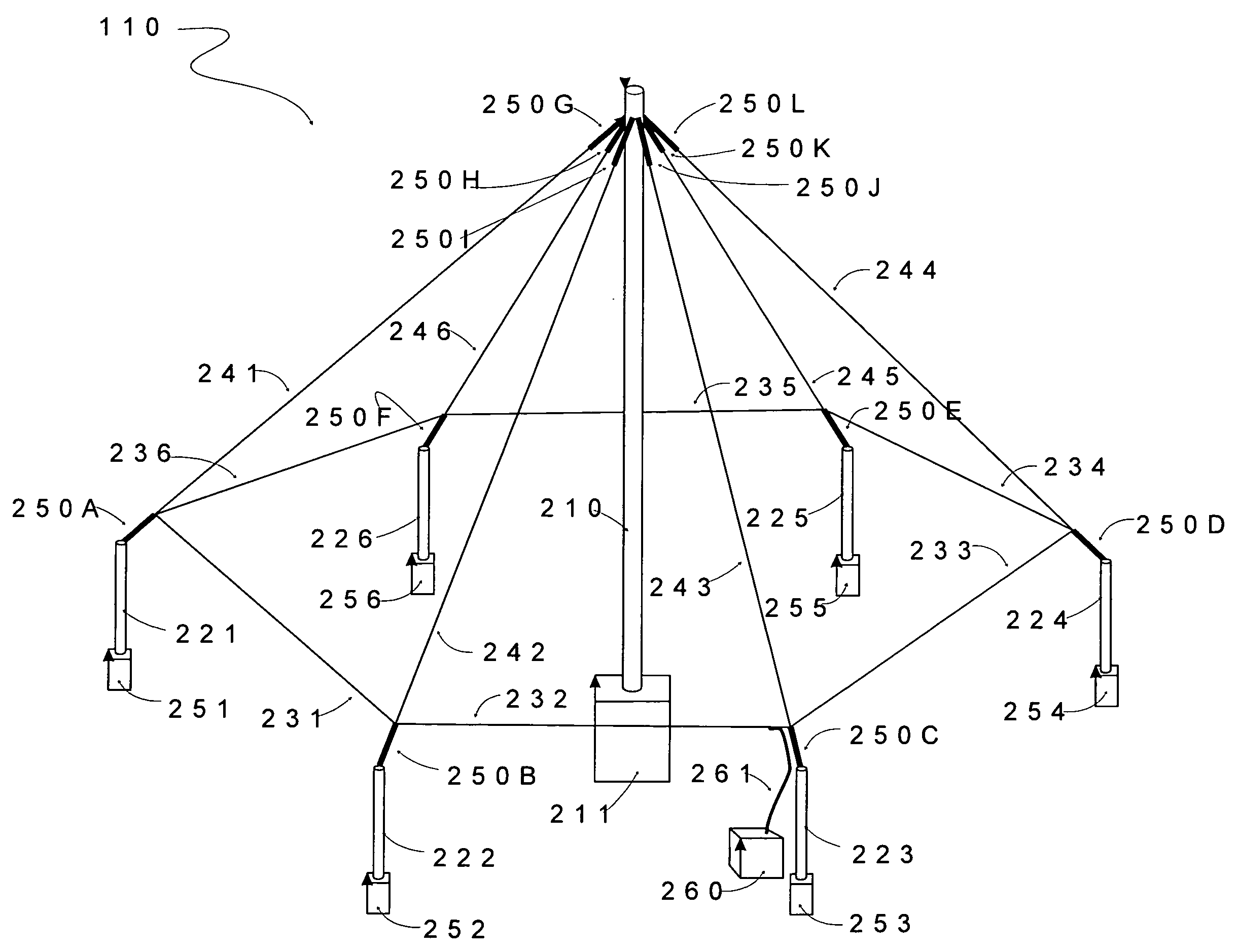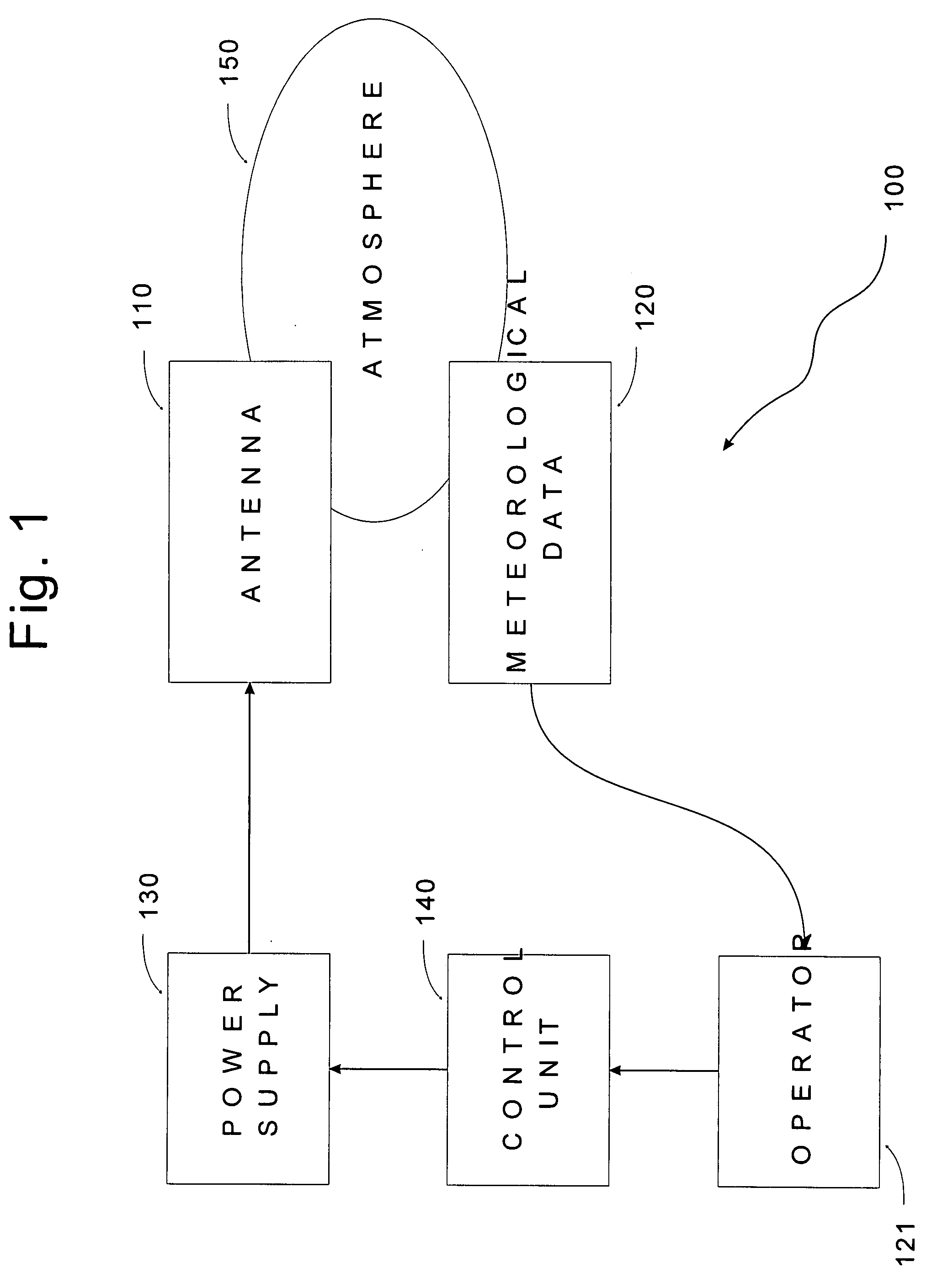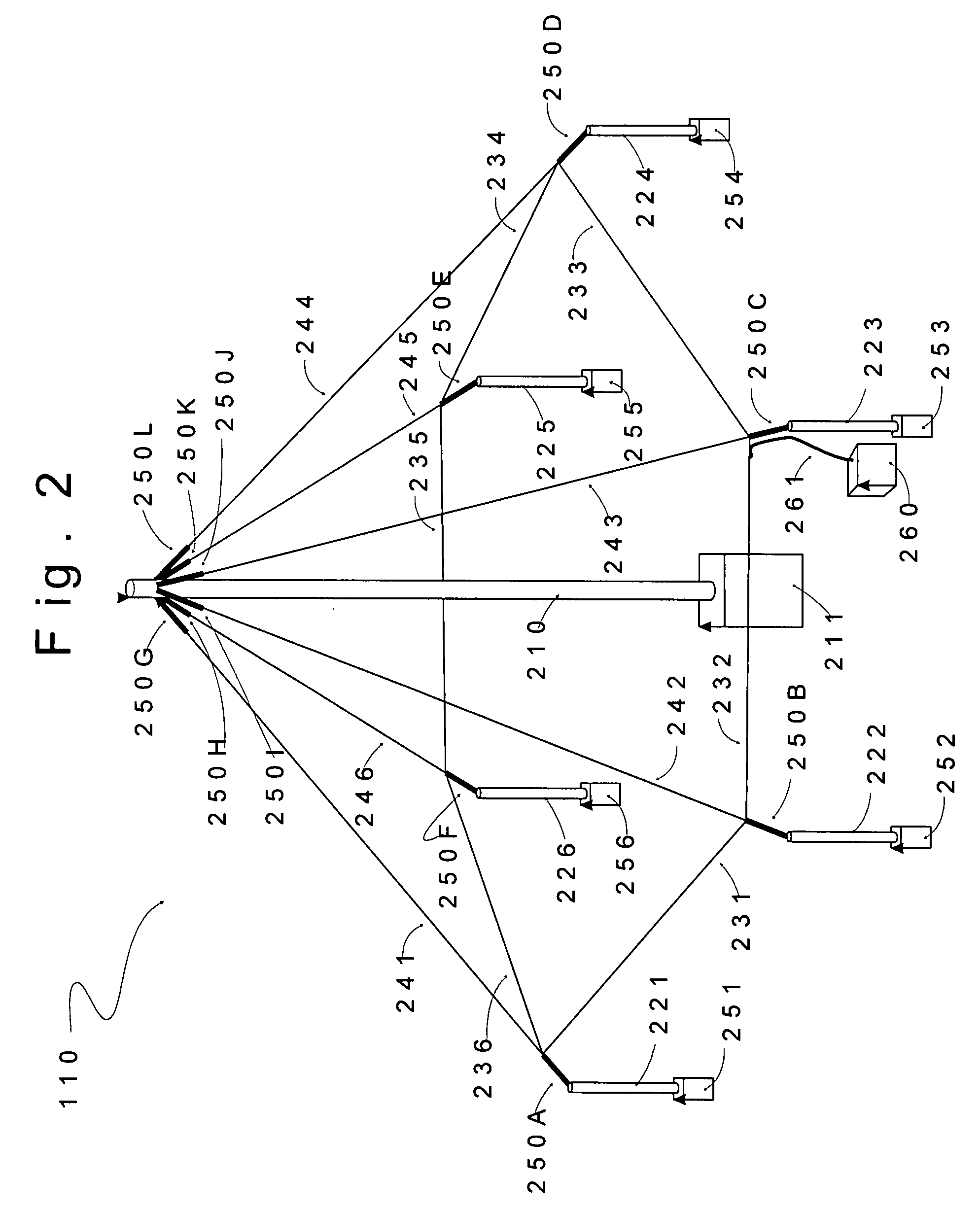Methods of removing aerosols from the atmosphere
a technology of aerosols and aerosols, which is applied in the direction of rhombic antennas, non-resonant long antennas, lighting and heating apparatus, etc., can solve the problems of significant electrical charge loss and inability to measure significant effects, and achieve efficient and optimal atmospheric ionization , increase the efficiency of ion emission from antennas, and increase the effect of atmospheric ionization
- Summary
- Abstract
- Description
- Claims
- Application Information
AI Technical Summary
Benefits of technology
Problems solved by technology
Method used
Image
Examples
examples
[0066]An experiment was conducted by installing and operating an ionization station. The ionization station was operated in several modes: Positive (positive voltage), Negative (negative voltage) and Non Operational (zero voltage, the station was turned off). The goal of the experiment was to determine what, if any, the effect or effects of the station would be on the surrounding atmosphere.
Equipment and Resources
[0067]1. High Voltage, Direct Current Power Supplies. Two supplies were used. The first was made by Matsusaka Corp. of Japan, Model AU-120R10, with manually switchable polarity (positive or negative), 0 to 120,000 volts, 0 to 10 miliamperes. The other power supply was a Spellman High Voltage Electronics Corp. SL 80P150 / 230, positive polarity, 0 to 80,000 volts, 0 to 2 miliamperes.[0068]2. Antenna. The configuration included a 120′ tall guyed central tower (25 G) manufactured by Rohn Industries, Inc. designed per EIA / TIA 22-f Standards. Ten 30′ tall aluminu...
PUM
 Login to View More
Login to View More Abstract
Description
Claims
Application Information
 Login to View More
Login to View More - R&D
- Intellectual Property
- Life Sciences
- Materials
- Tech Scout
- Unparalleled Data Quality
- Higher Quality Content
- 60% Fewer Hallucinations
Browse by: Latest US Patents, China's latest patents, Technical Efficacy Thesaurus, Application Domain, Technology Topic, Popular Technical Reports.
© 2025 PatSnap. All rights reserved.Legal|Privacy policy|Modern Slavery Act Transparency Statement|Sitemap|About US| Contact US: help@patsnap.com



